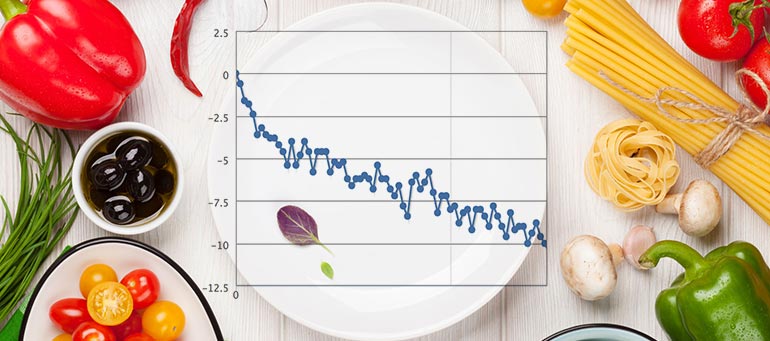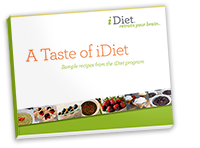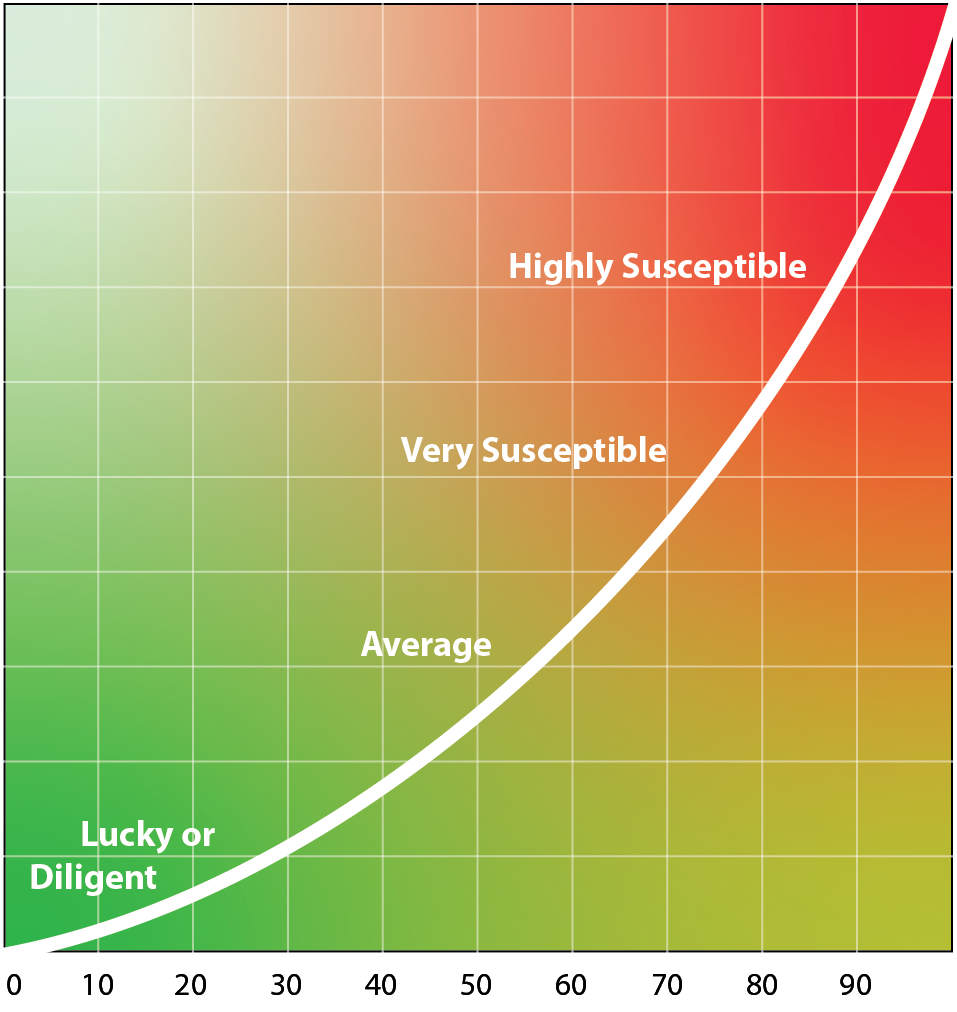What is Healthy Weight Loss?

Here at iDiet, we use phrases such as “healthy weight loss” and “maximum healthy rate” of weight loss. So what does that really mean? Let’s dive deeper.
The basic, unavoidable principle of weight loss is to reduce calorie intake below the body’s daily weight-maintenance level. The trick for success is to do it in a way that doesn’t make you unhappy or unhealthy, so you can stick with your diet long enough to see the great benefits. It’s also important to reduce calories in a way that the food you eat continues to provide you with essential nutrients for health. The fewer calories you take in, the more important it becomes for your foods to be nutritious and balanced.
iDiet was created based on 20 years of clinical research and a thorough analysis of the causes of diet failure. iDiet was designed to prevent or eliminate the factors that cause diets to fail. In this article, we’ll cover 3 key problems, how they’ve been overcome through smart design, and how this results in healthy, sustainable weight loss.
Weight Loss Challenge #1: Hunger
Many people start out a diet with high motivation and use willpower to “power through” the hunger that results from consuming fewer calories. This quickly becomes a problem because willpower is finite, but your body’s need for energy seems infinite. 🙂 So after a few days, or a few weeks, your willpower is exhausted, your motivation flags, and the diet ends. But it doesn’t have to be this way. We’ll explain why in a moment.
willpower is finite, but your body's need for energy seems infinite. Share on XWeight Loss Challenge #2: The Rebound Effect
You’ve probably either read about or personally experienced the diet rebound effect. This is what happens after a diet ends, and eating returns to pre-diet levels. Typically, a dieter will go back to their old habits and regain more weight than they lost, leaving them heavier than before they started. This is a particular problem with crash diets (like the grapefruit diet), rapid weight loss diets (juicing, fasting, liquid diets), or any number of fad “belly fat blasting” diets.
Once you’ve lost weight, your body has naturally lower energy needs because there is less of you, so after a successful diet, you need to adjust your daily eating to be slightly less than before. This is a good thing! It means you succeeded at your diet.
Weight Loss Challenge #3: Lowered Metabolism
But if you lose weight too quickly — more than 2-3 pounds a week — you’ll face an additional metabolic challenge. The human body can only metabolize (“burn up”) about 2 pounds of fat each week (sometimes slightly more for active men). Any weight lost on top of this weekly figure comes from the body cannibalizing muscle, and some water weight. (Water is stored with body tissues, so as you burn up stored fat, you release some water along with it.) So if you put yourself into starvation mode to lose weight quickly, the body will essentially panic and try to hold onto fat, sacrificing muscle. Since muscle is your body’s “furnace”, ending a diet with less muscle mass than before you began will mean you need to drastically reduce your maintenance calorie level to prevent weight regain. This sets you up for long-term failure, since it’s hard to live on few calories in our food-rich world.
There are additional challenges that dieters face, such as food abundance, social and emotional triggers, snacking, craving favorite foods, and the food industry’s profit incentive. We might cover those in a future article. But these 3 challenges are key to understanding why iDiet works.
Healthy Weight Loss Solutions
The iDiet is designed to avoid these problems through smart design. This is where we get back to healthy weight loss and losing weight at the maximum healthy rate for your body.
As discussed above, we know that if the body thinks it’s starving, it adjusts metabolism to compensate, and fat loss stops. So we don’t let that happen. This is beneficial for a number of reasons. When you begin the iDiet, we provide you with a customized EasyPlan that’s set at the correct calorie level for your age and body size, to provide for up to 2 pounds of weight loss a week — no more. It’s also designed with foods that digest slowly to help you feel full longer, foods that don’t spike your blood sugar, to keep your energy levels even, and foods that are nutritious yet tasty, to keep you healthy. *
if the body thinks it's starving, it adjusts metabolism to compensate, and fat loss stops. So we don't let that happen. Share on XThese foods and meals keep all the hunger signaling in your body — your hunger hormones, your stomach stretch receptors, your blood sugar levels — everything that science can measure and control — at a good level. So biologically, you stay out of starvation mode, which allows your body to access and burn fat rather than muscle. That’s where “maximum healthy rate” applies. Lab studies have shown the weight loss iDieters enjoy is nearly 100% fat, and not muscle. This means no lowered metabolism, no plateaus, and no rebound effect.
Lab studies have shown the weight loss iDieters enjoy is nearly 100% fat, and not muscle. Share on XAnother significant benefit is in avoiding hunger. Since the iDiet meal plans keep you from feeling hunger, it’s easy to stay on the iDiet, since you don’t need to use precious willpower to resist overeating. If you ever feel hungry while on the iDiet, contact your Group Leader who will help you adjust your meal plans to compensate. We absolutely do not want you feeling hungry — that is the foundation on which everything else is built. It’s also reassuring because hunger is the #1 reason why diets fail.
Thanks for your interest in this quick summary of the science behind healthy weight loss, and how we arrived at a 2-pound-per-week weight loss target. If you have any questions about the iDiet not answered here, feel free to write us at info@theidiet.com, or find us on Facebook (links are on top of this page).
*We are frequently asked, and yes, iDiet does have EasyPlan options for gluten-free, vegetarian, and vegan diet concerns. iDiet’s EasyPlans are already moderately low glycemic, but we can also customize them further to reduce the glycemic load further for diabetes patients.
Register Today
Choose the program that’s right for you.

 Yes! I want to receive a 38-page cookbook, and be informed of upcoming classes. No obligation, instant download.
Yes! I want to receive a 38-page cookbook, and be informed of upcoming classes. No obligation, instant download. 